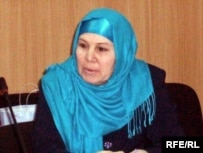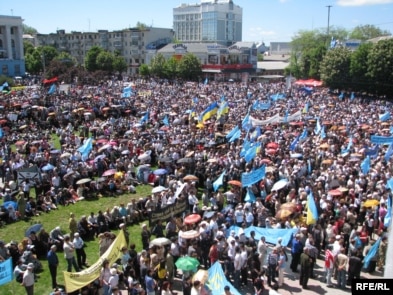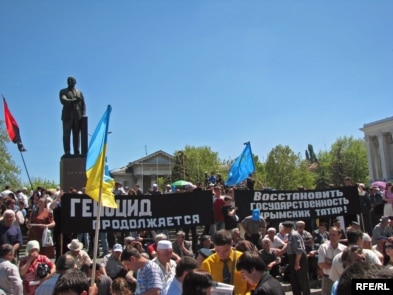Business Week
May 18, 2009
Gas Pipelines: South Stream Gets a Boost
Key countries sign on to Russia’s South Stream project, giving it an edge over the rival Nabucco pipeline proposal in a race with geopolitical repercussions
By Jason Bush
On May 15, Russia signed deals with Italy, Serbia, Bulgaria, and Greece, bringing the South Stream project, a major new gas pipeline to Europe, one step closer to reality.
At a meeting in Sochi, attended by Russian Prime Minister Vladimir Putin and Italian Prime Minister Silvio Berlusconi, Russia’s Gazprom (GAZP.RTS) and Italy’s ENI (ENI.MI) agreed to double the planned pipeline’s capacity to 63 billion cubic meters. In addition to ENI, Gazprom signed memoranda of understanding with Greek natural gas transmission company DESFA, Serbia’s Srbijagas, and Bulgarian Energy Holding.
The participating countries also signed documents needed to start work on the 2,000km (1,243-mile) pipeline. With completion planned by 2015, South Stream eventually will pump natural gas from southern Russia under the Black Sea, bringing it via Bulgaria, Serbia, Hungary, and Greece to terminals in western Austria and southern Italy.
The agreement represents a significant diplomatic coup for Russia in a great geopolitical race that will help determine the source of Europe’s energy supplies for decades to come. That race has been visibly gaining pace over recent weeks. Backers of a rival pipeline to southern Europe are now vying to put together the necessary political support. “It’s very much down to the wire now,” says Chris Weafer, chief strategist at UralSib (USBN.RTS), a Moscow bank. “There’s definitely a race on to get all the signatures in place.”
Concerns About a Stranglehold
It’s no coincidence that the agreements on South Stream come just days after a key summit in Prague designed to give political impetus to Nabucco, a proposed rival pipeline through Turkey that is backed by the European Commission and the U.S. In the eyes of the EU and the U.S., the key advantage of Nabucco is that it would bypass Russia, diminishing Europe’s already heavy dependence on Russian gas. Imports from Russia presently account for around 40% of gas imports and 25% of gas consumption in Europe. Concerns about Russia’s stranglehold on Europe’s energy have only intensified recently, following this January’s damaging price spat between Russia and Ukraine, which briefly saw Russia’s gas supplies to Europe suspended.
Those fears help explain the recent burst of activity surrounding Nabucco, a project that has been under discussion since 2002. In addition to the Prague summit, the EU has also been busy courting Turkey, a key transit country, which is expected to sign an agreement in June paving the way for Turkey to host the pipeline. Previously, there had been concerns that Turkey would try to use the pipeline as a bargaining chip in EU accession negotiations.
But despite the recent progress on Nabucco, it all still looks to many analysts like a case of too little, too late. “I believe Nabucco still looks very problematic,” says Jonathan Stern, director of gas research at the Oxford Institute for Energy Studies. “It might work, or it might not, but I don’t think it’s going to work quickly.” He argues that the pipeline probably won’t be viable until around 2020much later than the 2014 starting date currently being advanced.
It doesn’t help that Russia, eager to safeguard its dominant position as Europe’s energy supplier, is already one step ahead of the game. The agreements reached in Sochi underscore Russia’s success in winning over key customers and transit countries for South Streama project that contradicts the EU’s stated policy of diversifying Europe’s energy supplies.
Where to Get the Gas
Even without the competition from South Stream, major question marks continue to hang over the whole economic viability of the Nabucco project. One key problem is financing: So far the EU has only committed a small fraction of the €7.9 billion ($10.6 billion) needed to build the pipeline. An even more basic question is where the gas for Nabucco (ultimately targeted at 31 billion cubic meters per annum) will come from.
The original idea behind the pipeline was to ship gas from the Caspian region and Central Asia, with gas-rich countries such as Azerbaijan, Kazakhstan, Turkmenistan, and Uzbekistan supplying the fuel. The snag is that of these four countries, only Azerbaijan signed up to the Prague agreement backing the project.
The other three Central Asian countries, under diplomatic pressure from Russia, pointedly declined to do so. In any case, no one has figured out how Central Asian gas could be linked up with Nabucco. A pipeline under the Caspian is impossible until all the bordering states resolve a long-running dispute over the sea’s legal status, giving Russia an effective veto.
Analysts therefore believe the only way Nabucco can be viable is if Iran can now be talked into supplying gas for the projecta scenario that the U.S. previously fought. And despite recent overtures from U.S. President Barack Obama to improve relations with Iran, it’s still far too soon to talk of any diplomatic thaw.
Meanwhile, the Russians are making progress with South Stream, which currently appears to be the more economically viable of the two. In sharp contrast to Nabucco, the Russians have no shortage of gas that could potentially be transported to Europe via the pipe, and the Russians also seem committed to financing the project. “It’s expensive, controversial, and hard to implement,” says Valery Nesterov, oil and gas analyst at Russian investment bank Troika Dialog. “But at least it has investment guarantees, and a resource base, to be secured by Gazprom. Though not without problems, the financial guarantees and resource base are still more realistic than those secured by Nabucco.”
Snail vs. Tortoise
It’s far too early, though, to declare victory for the Russians. The South Stream project also faces many daunting obstacles. Indeed, the great pipeline race might be said to resemble a marathon contest between a snail and a tortoise. “At this stage, it’s not clear where the gas is going to come from for either route,” says UralSib’s Weafer.
Although Russia has huge gas reserves that could potentially be shipped Europe’s way, most of those reserves are still sitting deep under the Arctic tundra, in the remote Yamal region of Northern Siberia. The cost of bringing them to market is gargantuanaround $250 billion, according to estimates by Royal Dutch Shell (RDSA). The current global recession has only increased the uncertainty about future gas demand, making Gazprom even more reluctant to invest. Russia and the EU have so far failed to hammer out legal agreements that would regulate joint ventures between Gazprom and Western partners. “It’s a real mess,” says Weafer.
Then there’s the tremendous cost of the South Stream pipeline itself. Officially estimated at between €19 billion and €24 billion ($25.6 billion to $32.4 billion), it’s around three times as expensive as the alternative Nabucco route. Those costs could now be especially problematic, at a time when the global financial crisis is depressing gas prices and Gazprom’s profits. “Gazprom is facing financial difficulties in the years to come,” says Nesterov, “and the cost of the project is tremendous.”
So despite South Stream’s diplomatic head start, the outcome of the great pipeline race is still far from certain. And neither pipeline is likely to provide any quick solution to Europe’s mounting long-term energy needs.
Bush is BusinessWeek’s Moscow bureau chief.
 MOSCOW, May 16 (Xinhua) — Russian Prime Minister Vladimir Putin said on Saturday that his country has become Turkey’s leading trade partner.
MOSCOW, May 16 (Xinhua) — Russian Prime Minister Vladimir Putin said on Saturday that his country has become Turkey’s leading trade partner. 







